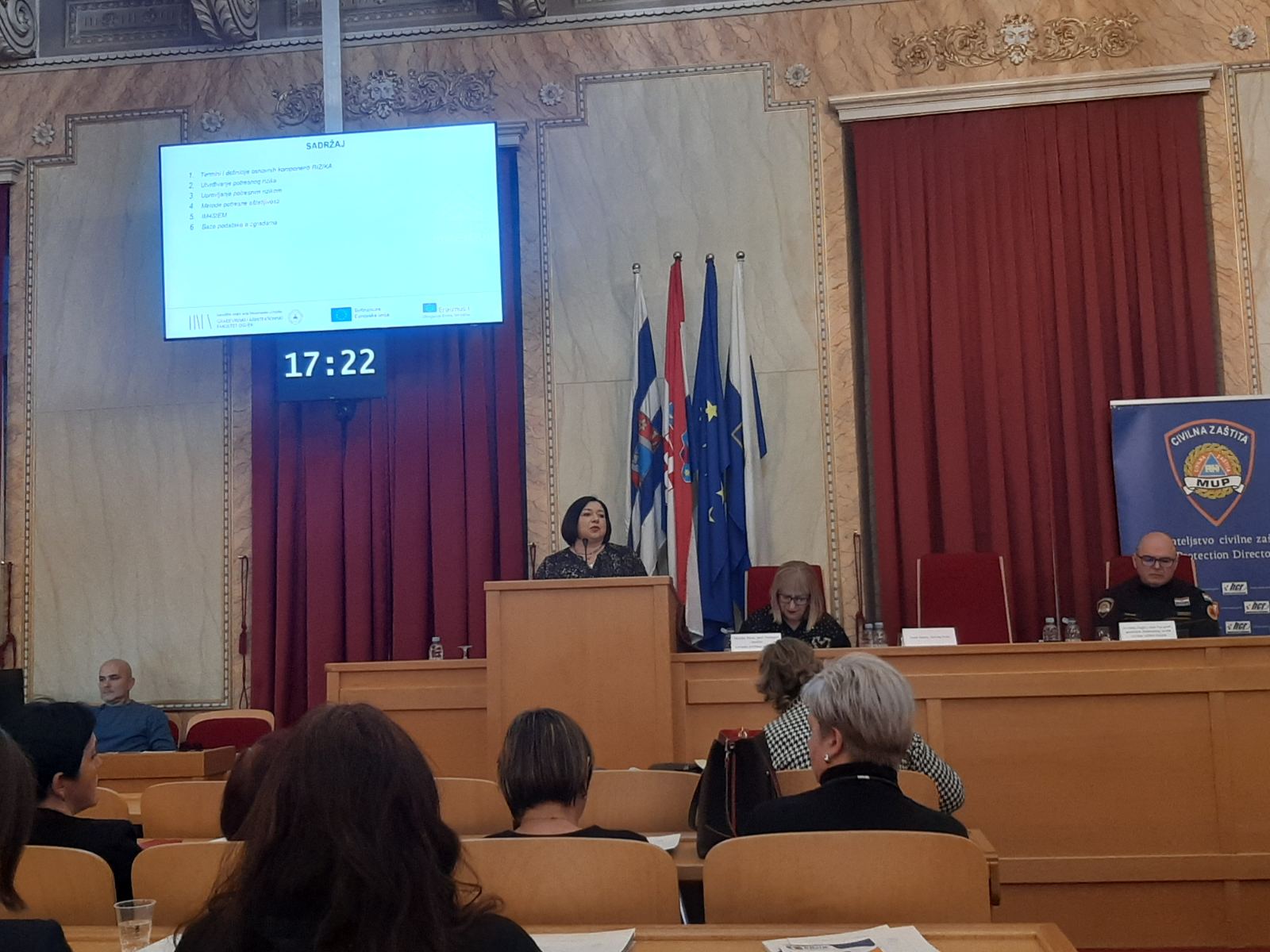Organised by the Regional Office for Civil Protection Osijek, a meeting of experts on the topic of “Risk reduction and knowledge for safer schools” was held in Osijek on Tuesday, 11 February 2025, on the occasion of the 20th anniversary of the number 112 in the Republic of Croatia. The aim of the expert meeting is to familiarize with the risks of disasters and to implement a risk reduction program in all areas and segments of society.
The expert meeting was opened by the head of PUCZ Osijek, Zvonko Grgec, and presentations were given by:
- meteorologist Zoran Vakula on the topic of “climate change”, who outlined the main challenges and possible strategies;
- teacher Ivana Dolaček, who presented the results of a survey conducted among students on the knowledge of correct behaviour in the event of accidents or disasters;
- Professor Marijana Hadzima-Nyarko on the topic of “Integrated earthquake risk management: prevention and knowledge for a safer life”;
- representative of Croatian Waters VGI Osijek Josip Suver on the topic ”Flood protection systems – historical overview and current trends”; and staff from the Regional Office for Civil Protection in Osijek emphasised the importance of education and preventive measures to reduce disaster risk.
The participants also took part in an interactive workshop and were able to deepen their knowledge and gain new experiences through practical tasks.
As part of the presentation “Integrated earthquake risk management: prevention and knowledge for a safer life”, Prof. Dr Sc. Marijana Hadzima-Nyarko gave a detailed overview of methods and strategies of earthquake risk assessment and management.
Key topics included:
- Definitions and risk components – explanation of basic concepts such as earthquake risk, vulnerability and hazard.
- Earthquake risk determination – an analytical approach that includes the integration of databases and maps to predict potential losses.
- Methodology for earthquake vulnerability assessment – a comparison of empirical and analytical methods, including the application of digital tools and models for damage prediction.
- The IM4StEM project – an international initiative that uses intelligent methods to analyze buildings and materials while collecting data on buildings in different regions.
